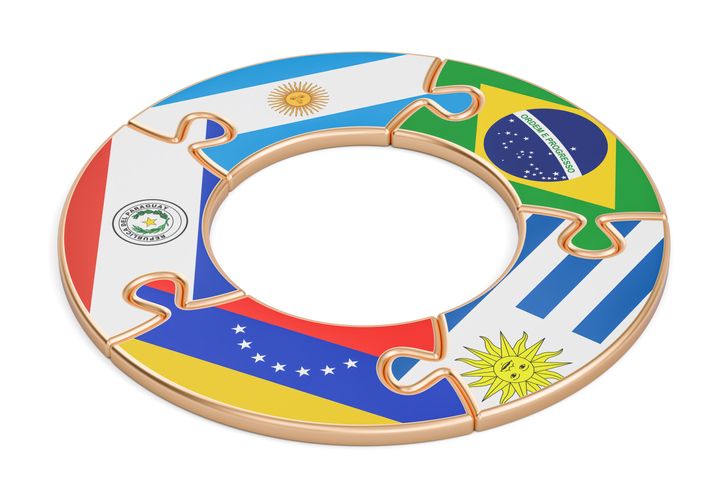Hidden amongst the headlines on trade wars is a relatively rare find in 2019: a potential trade agreement.
Europe is reportedly close to a trade deal with the South American trading bloc Mercosur, according to recent reports.
The bloc counts Brazil, Argentina, Paraguay and Uruguay as full members, as well as five other South American nations as associate members, and provides access to trade in key agricultural commodities.
A silver lining
“In an era when trade wars appear to be more commonplace than trade agreements, a Europe-Mercosur deal would be a positive for both regions, as well as a helpful sign for international accords,” said Nikki Howes, investment associate at Heartwood Investment Management, the UK asset management arm of Handelsbanken.
The EU-Mercosur agreement has been under negotiation for almost 20 years and finalised offers for market access are expected in September this year.
Some agricultural issues surrounding sanitary controls and export quotas for key foodstuffs remain unresolved, but European Commission negotiators have suggested that an agreement must be achieved before October, when a new set of EU officials take over.
“If completed, the deal would be the largest in Mercosur’s history, as the bloc has struggled to achieve large accords outside of South America. For Europe, the deal could be worth four times more than the tariff savings from its separate agreements with Japan and Canada,” Howes said.
“It would also provide a sharp reminder that Europe remains very much open for business, despite the ongoing Brexit saga and in stark contrast to a protectionist US. Indeed, Europe is currently enjoying improved negotiating power on the international stage, setting itself up as a more favourable and reliable trading partner than Donald Trump’s America.”
Europe’s outlook remains weak
If a Europe-Mercosur trade deal comes to fruition, it would be a boost for Europe, which is struggling to fight off economic slowdown led by weakness in the German economy, as as well as a positive development for global trade.
Nonetheless, key issues in Europe remain unchanged. “US tariffs on European auto sector exports could still be inflicted, even if the White House has delayed this eventuality for the time being,” said Howes
Europe also remains vulnerable to the ongoing US-China trade uncertainty. Both the US and China are major European trading partners – indeed, multiple times larger than the Mercosur trading bloc, though trade with the latter could grow under the auspices of a new deal.
European trade is more exposed to the US and China than to South America
2018 imports and exports, €bn

Source: European Commission
Against this uncertain backdrop, the European economy is struggling to gain momentum. Domestic issues like low inflation and internal disputes – such as Italy’s push back against budget deficit rules –also share some of the blame.
In this testing environment, the European Central Bank has recently suggested that it will consider further stimulus if inflation remains lacklustre, though for the time being it remains on the sidelines; perhaps waiting to see if the US Federal Reserve will enact more accommodative policy first.
The European bond market is certainly sending signals for the ECB to act, with yields on German 10-year Bunds now in negative territory and at record lows. A lack of concerted, pro-growth action by European governments is further compounding the region’s issues.
Howes said: “While we welcome any progress Europe makes on bilateral trade relations, we currently maintain an underweight position in European stock markets. Europe’s anaemic economic growth, exposure to US-China trade disputes, and lack of convincing government or central bank action leaves us uneasy about investing in riskier assets in the region.”







